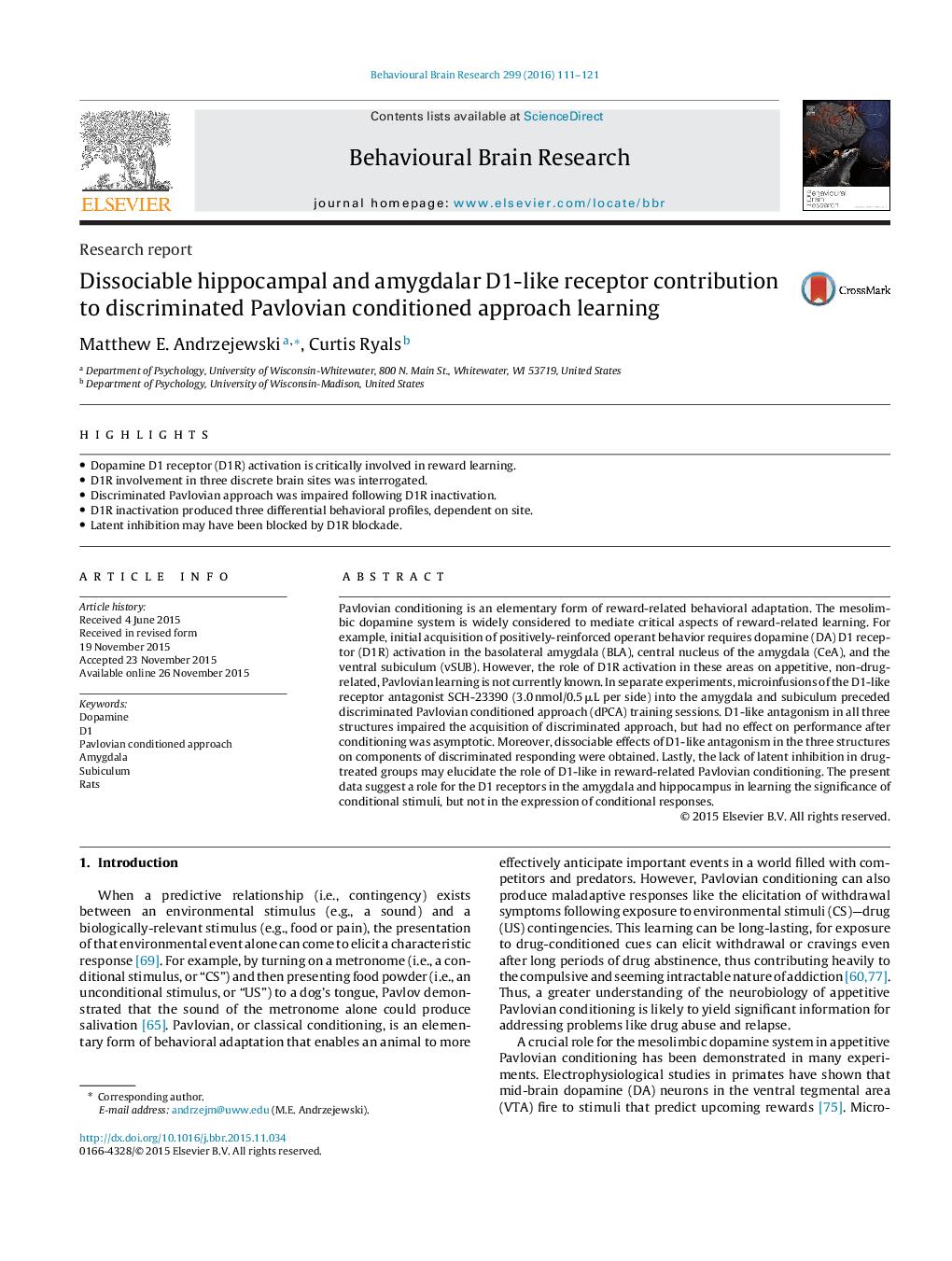| Article ID | Journal | Published Year | Pages | File Type |
|---|---|---|---|---|
| 6256235 | Behavioural Brain Research | 2016 | 11 Pages |
â¢Dopamine D1 receptor (D1R) activation is critically involved in reward learning.â¢D1R involvement in three discrete brain sites was interrogated.â¢Discriminated Pavlovian approach was impaired following D1R inactivation.â¢D1R inactivation produced three differential behavioral profiles, dependent on site.â¢Latent inhibition may have been blocked by D1R blockade.
Pavlovian conditioning is an elementary form of reward-related behavioral adaptation. The mesolimbic dopamine system is widely considered to mediate critical aspects of reward-related learning. For example, initial acquisition of positively-reinforced operant behavior requires dopamine (DA) D1 receptor (D1R) activation in the basolateral amygdala (BLA), central nucleus of the amygdala (CeA), and the ventral subiculum (vSUB). However, the role of D1R activation in these areas on appetitive, non-drug-related, Pavlovian learning is not currently known. In separate experiments, microinfusions of the D1-like receptor antagonist SCH-23390 (3.0 nmol/0.5 μL per side) into the amygdala and subiculum preceded discriminated Pavlovian conditioned approach (dPCA) training sessions. D1-like antagonism in all three structures impaired the acquisition of discriminated approach, but had no effect on performance after conditioning was asymptotic. Moreover, dissociable effects of D1-like antagonism in the three structures on components of discriminated responding were obtained. Lastly, the lack of latent inhibition in drug-treated groups may elucidate the role of D1-like in reward-related Pavlovian conditioning. The present data suggest a role for the D1 receptors in the amygdala and hippocampus in learning the significance of conditional stimuli, but not in the expression of conditional responses.
